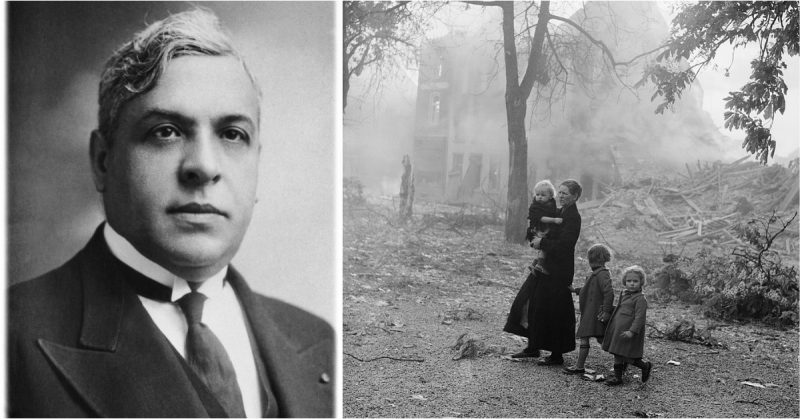For people who stand strong in their beliefs there are no hard times or difficult choices. There are only principles and one’s will to stick to them. One holy man has said that God has created us as human beings and asks us to act accordingly, no matter how difficult the situation. Aristides de Sousa Mendes acted as a human being when the time was as hard as it could be.
Death at the Doorstep
On 10 May 1940, German troops broke through the borders of the Low Countries and started their invasion with the final goal of conquering the western part of the European continent. Their Panzers were rolling south as if there was no one to stop them. Allied troops were retreating in chaos and government officials were looking for a secure way to Great Britain while ordinary people were left at the mercy of occupiers.
But Jews from all over the Netherlands, Belgium, and France knew that there would be no mercy for them. Thousands of desperate families left their homes and tried to reach safety across the English Channel.
However, every single vessel was engaged in transporting troops away from incoming Panzers. In such a situation, neutral Spain and Portugal seemed like the only way out.

On their way south, down in Bordeaux, one man was giving away figurative tickets to safety. Word of his benevolence quickly spread, so a torrent of refugees rushed to Bordeaux to seek help from him. He was their only chance for salvation.
His name was Aristides de Sousa Mendes. He was a Portuguese Consul to Bordeaux, and he was issuing passports and visas to all those who needed to run away from the Nazis.
A Man of Faith
There was something odd about a man in service of a country whose Prime Minister favored Fascists issuing visas to those who were victims of such regimes.
Born on July 19, 1885, Aristides de Sousa Mendes do Amaral e Abranches came from an old family of Portuguese aristocrats. His father was a judge, so he and his twin brother were sent to study law at the University of Coimbra. As soon as he finished his studies, Sousa Mendes began his diplomatic career.
His first mission was in Zanzibar, after which he spent the rest of his career in missions in Brazil, Spain, the United States, Belgium, and finally France. From the very beginning, his entire diplomatic career had a slight tone of disobedience, for which he was disciplined on numerous occasions. It was in his nature to put his principles before the demands of his service.
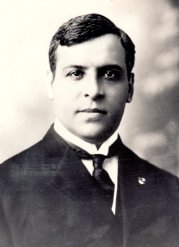
Contrary to his trouble-making character while in service, Sousa Mendes was a true family man and patriarch. He was always surrounded by his wife and 14 children, whom he considered as his greatest treasure. He paid a lot of attention to the education of his children, sending them to the best schools and universities. He loved music, food, dance, and all the joys that life provided.
Above everything else, Sousa was a very religious man. He sincerely believed in the might of good deeds. He had a Christian conscience that never allowed him to turn his back on the moral and human principles his religion preached.
More importantly, his faith was not based on words only. He knew that he could practice his faith only through his deeds. Because of his beliefs, Sousa put his entire career, and even his life and the lives of his entire family, at stake.
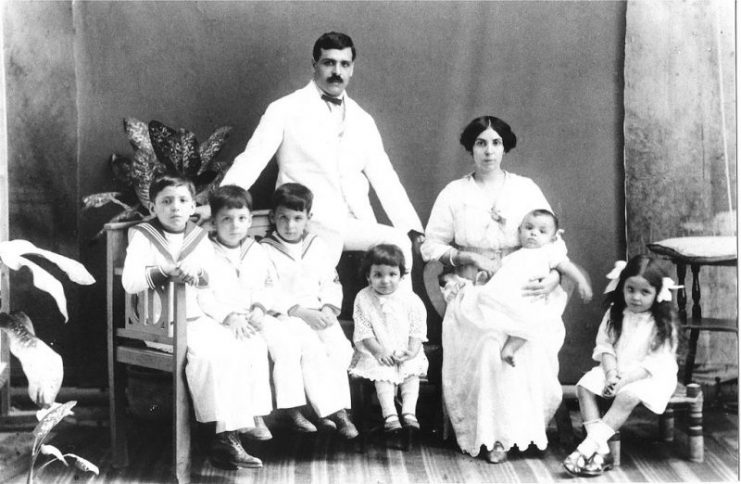
Disobedient Consul
Now it was mid-June 1940. Germans were everywhere and France was on the verge of defeat. Refugees were running south, many of them through Bordeaux.
One night Rabbi Haim Kruger, a Polish refugee, asked Sousa to issue visas to thousands of Jews who had gathered in the city. At first, Sousa only agreed to give visas to Kruger and his family, but the rabbi rejected the offer. It was all of them, or no one, he said.
After wrestling with his conscience for two days and nights, Sousa decided that he would issue visas to all who needed them. He knew that as a true Christian he could not turn his back to people who desperately needed help.
The problem was that doing so was in complete opposition to the orders he had received from his government. Even though Portugal remained neutral during the entire war, Prime Minister Antonio de Oliveira Salazar was openly sympathetic toward Nazis and especially Hitler. In order to please Hitler, Salazar issued the notorious “Circular 14” forbidding all Jews, Soviets, dissidents, and stateless persons to enter Portugal.
Sousa also received a Circular. Completely aware of all the repercussions, he decided to go with his conscience.
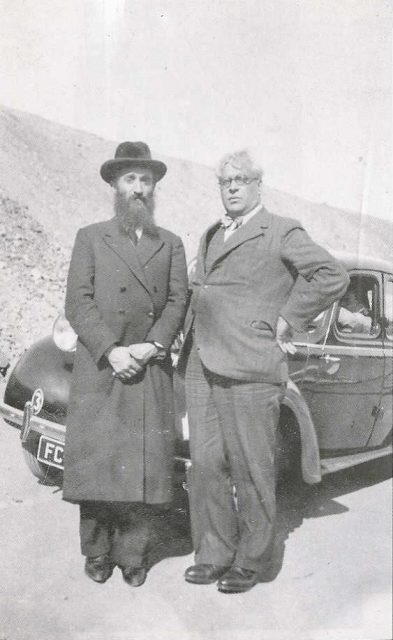
A mass production of visas
On June 17, 1940 Sousa Mendes spoke to people in front of his Embassy. He claimed that the Portuguese Constitution clearly stated that neither the religion nor the political beliefs of foreigners could be used as a pretext for refusing to allow them to stay in Portugal.
In no time, Sousa and his two sons set up a production line of transit visas and other travel documents. In two days they issued around 30,000 visas. While they worked relentlessly, Sousa’s wife Angelina took care of the children, pregnant women, and ill refugees. The consulate became a harbor of hope for all those who were running from the Nazis.
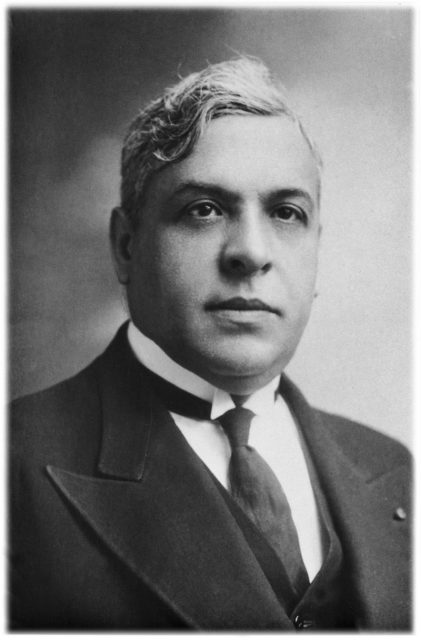
On June 19, German bombs begun to fall on Bordeaux. Many of the refugees fled to the border towns of Bayonne and Hendaye, where Sousa continued to issue visas. He even went to the border to persuade Spanish border officials to allow refugees to enter Spain.
Out of 30,000 visas, 12,000 were issued to Jews. Among the people that Sousa helped were the last Crown Prince of Austria Otto von Habsburg, the Rothschild family, and the entire Belgian cabinet.
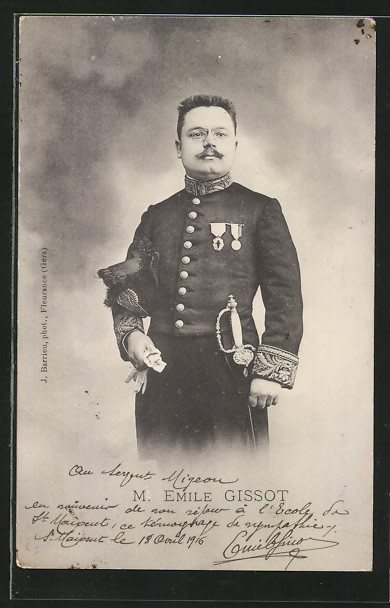
Sousa continued to issue travel documents to Jews even when the Germans entered Bordeaux on June 27, 1940. However, by that time word of Sousa’s disobedience had reached Lisbon and he was called upon to return to Portugal. On July 8, 1940 Sousa left Bordeaux.
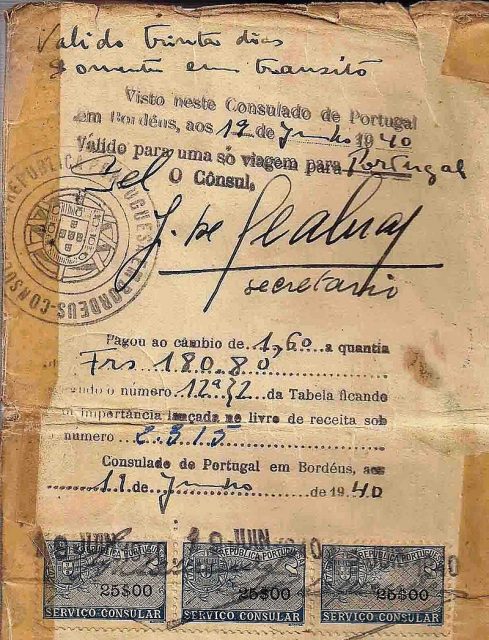
A life in misery
After he returned to Lisbon, he had to face the fury of Salazar. Sousa Mendes was immediately dismissed from his diplomatic position and was declared a disgraced non-person. As such, the government forbade him to practice law or to look for any kind of job and even canceled his retirement pension. His children suffered the same punishment as they were denied education and job opportunities.
Sousa was forced to move to his family residence in Passal. Soon, all of his children left the country in search of a new start for their lives. Not long after, Sousa’s home was sold by the bank to cover his debts. Sousa and his wife continued to live in abject poverty.
After fourteen years of living in disgrace, Aristid de Sousa Mendes died in 1954 in a Franciscan monastery. When he was dying, he begged his children to do everything in their power to clear his name.
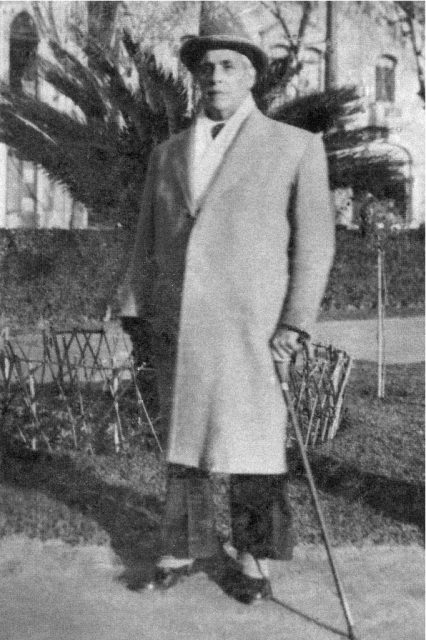
Rehabilitation
Sousa Mendes was ostracized in his own country, but was never forgotten by those he saved. After his death, the story of Sousa’s deeds began to spread in order to clear his name. In 1966, the Yad Vashem Memorial recognized Sousa Mendes as Righteous Among the Nations. Twenty years later, the U.S. Congress introduced a resolution recognizing his contribution in saving thousands of Jews from death.
Finally, in 1988 the Portuguese Parliament officially dismissed all charges against Sousa Mendes and restored him posthumously to the diplomatic corps. He was also awarded a posthumous Cross of Merit.
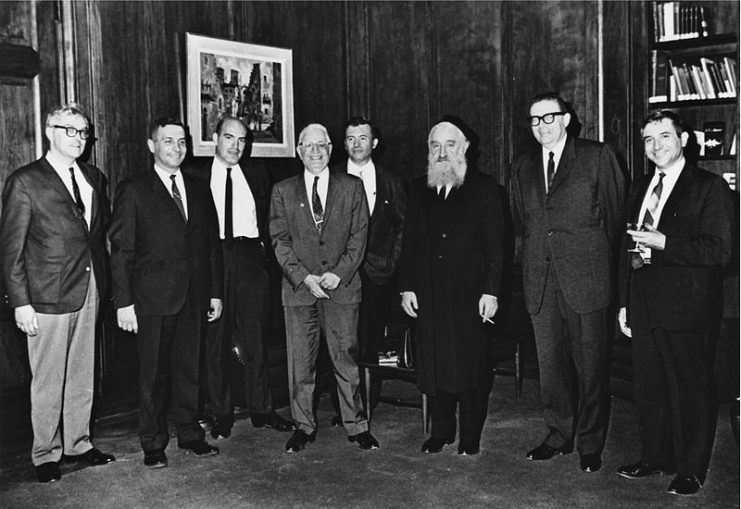
In 1994, a bust of Sousa Mendes was set in Bordeaux along with a commemorative plaque on the house where the Portuguese Consulate used to be. It stands in memory of a man who had the courage to be a human being at the cost of his livelihood.
